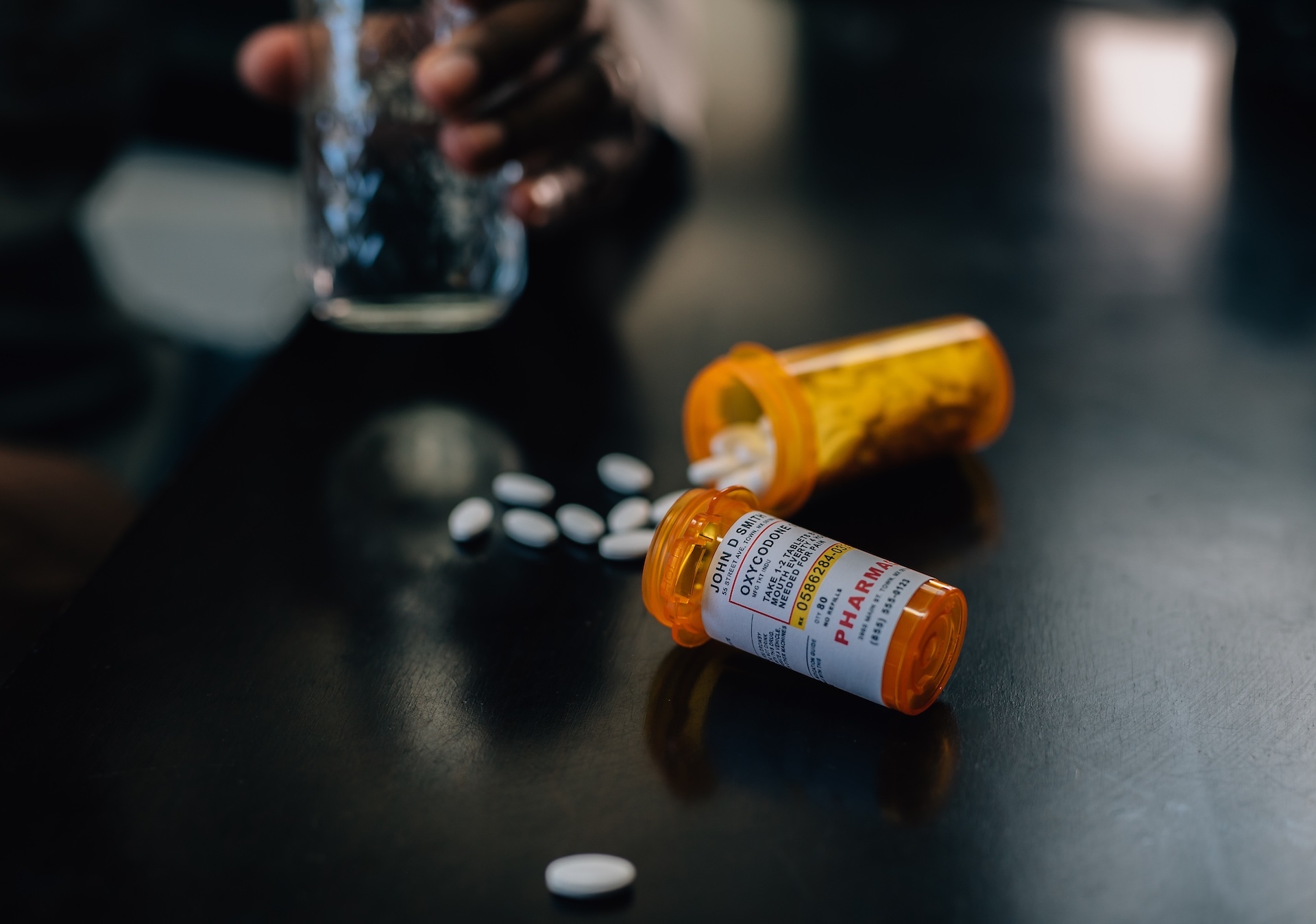Your Guide to Opiate Addiction Treatment in Los Angeles


Looking for opiate addiction treatment near you in Los Angeles? Discover personalized care, detox options, and long-term support to help you reclaim your life.
Opiate addiction continues to devastate lives across Los Angeles, with overdose rates and dependency cases rising each year. If you’re searching for opiate addiction treatment near you, you’re not alone—and help is available.
At The Forge Recovery Center, we offer personalized treatment plans designed to support you or your loved one through every stage of recovery. Our team understands the challenges of addiction and co-occurring mental health issues, and we’re here to help you reclaim a healthier, more stable life. In this article, we will explore your treatment options and how to take the first step toward lasting recovery.
Understanding Opiate Addiction

Opiate addiction is a chronic, relapsing condition that occurs when the brain becomes dependent on drugs like heroin, morphine, or prescription painkillers such as oxycodone and hydrocodone. These substances bind to opioid receptors in the brain, producing intense feelings of euphoria and pain relief. Over time, the body builds tolerance, requiring higher doses to achieve the same effects—leading to physical and psychological dependence.
Physically, opiate addiction can result in withdrawal symptoms like nausea, muscle pain, and insomnia when drug use stops. Mentally, it disrupts brain chemistry, often causing anxiety, depression, and compulsive drug-seeking behaviors.
Common signs of opiate addiction include:
Taking more medication than prescribed
Inability to stop or reduce use
Withdrawal symptoms when not using
Social withdrawal or neglecting responsibilities
Doctor shopping or forging prescriptions
Early intervention is critical. The longer addiction persists, the harder it becomes to treat due to worsening physical health and psychological damage. Identifying the problem early and seeking professional treatment—such as that offered at The Forge Recovery Center—can significantly improve the chances of a successful and lasting recovery.
Treatment Options Available in Los Angeles

Finding the right treatment for opiate addiction can feel overwhelming, but understanding your options is the first step toward reclaiming control. In Los Angeles, there are several evidence-based approaches tailored to fit different needs and lifestyles. Here’s what you should know:
Medical Detoxification
Detox is often the first step in recovery. It involves clearing opiates from your system in a safe, controlled environment. Medical detox is critical because withdrawal symptoms—like nausea, sweating, insomnia, and severe anxiety—can be intense and even dangerous. Under medical supervision, you’ll receive around-the-clock care and medications to ease discomfort and stabilize your health before moving into long-term treatment.
Inpatient Rehabilitation
Inpatient, or residential treatment, offers a structured and immersive environment where individuals can focus solely on recovery. These programs typically last 30 to 90 days and include therapy, wellness activities, and 24/7 support. Inpatient rehab is especially helpful for those with severe addiction or unstable home environments. It provides a safe, trigger-free space to rebuild routines and learn coping skills.
Outpatient Programs
Outpatient treatment allows you to live at home while attending scheduled therapy sessions several times a week. This option is ideal for those who have completed inpatient care or need flexibility to maintain work, school, or family obligations. Programs vary in intensity—ranging from standard outpatient to Intensive Outpatient Programs (IOPs)—and often include group therapy, individual counseling, and relapse prevention planning.
Medication-Assisted Treatment (MAT)
MAT combines therapy with FDA-approved medications like methadone, buprenorphine (Suboxone), and naltrexone to reduce cravings and prevent relapse. These medications help normalize brain chemistry, block the euphoric effects of opiates, and ease withdrawal symptoms—making it easier to engage in therapy and maintain sobriety. MAT is not a replacement for therapy but an essential tool in a comprehensive recovery plan.
At The Forge Recovery Center, we offer all of these options as part of our commitment to personalized care—ensuring that you receive the right support at every stage of your recovery journey.
Are You Struggling with Mental Health or Addiction?
We Can Help. Call Us Now!
CALL: 877-839-1772
Personalized Treatment at The Forge Recovery Center
At The Forge Recovery Center, we believe effective recovery starts with a plan built around you—not a one-size-fits-all program. Every individual’s journey through addiction is different, which is why we create personalized treatment plans tailored to your specific history, challenges, and goals. From the initial assessment, our clinical team works closely with you to understand not just the substance use, but the underlying factors driving it—whether that's trauma, stress, or co-occurring mental health conditions.
What sets us apart is our integrated dual diagnosis care. Many individuals struggling with opiate addiction also face conditions like anxiety, depression, or PTSD. Treating addiction without addressing these mental health issues often leads to relapse. At The Forge Recovery Center, mental health services are woven into every treatment plan—from psychiatric care and therapy to mindfulness practices and holistic wellness activities.
But our commitment doesn’t stop when you leave treatment. Recovery is a lifelong journey, and long-term support is essential to staying on track. That’s why we offer ongoing aftercare planning, alumni programs, and access to recovery resources even after formal treatment ends. Whether you need help transitioning to sober living, finding a support group, or just someone to check in with, we’re here for the long haul.
At The Forge Recovery Center, you’re not just a patient—you’re a partner in your own recovery. And we’re with you every step of the way.
Navigating the Treatment Process

Taking the first step toward recovery can feel daunting—but knowing what to expect can ease anxiety and help you feel more in control. At The Forge Recovery Center, we’ve designed our treatment process to be clear, supportive, and personalized from day one. Here's a step-by-step look at what you can expect:
Step 1: Initial Consultation and Assessment
Your journey begins with a confidential consultation, where our team listens to your story and evaluates your unique needs. We conduct a thorough assessment covering substance use history, mental health, physical health, and personal goals. This forms the foundation of your customized treatment plan.
Step 2: Detox (If Needed)
If detox is required, we arrange for medically supervised care to ensure your safety and comfort as your body clears the substance. This step is critical to prepare you for focused therapeutic work.
Step 3: Treatment Begins – Therapy and Support
Once stabilized, you’ll begin your personalized treatment program. This includes:
Individual therapy to explore root causes and build healthy coping strategies
Group therapy for peer support and shared experiences
Mental health treatment for co-occurring conditions like anxiety or depression
Holistic services such as mindfulness, fitness, and nutrition to support whole-person healing
Step 4: Aftercare Planning
Before you complete treatment, we’ll work with you to build a solid aftercare plan. This might include continued therapy, sober living arrangements, support groups, and alumni engagement to keep you connected and supported long-term.
Tips to Prepare for Treatment:
Pack essentials only: comfortable clothing, toiletries, personal ID, and any prescribed medications
Leave distractions behind: limit electronics unless approved
Mentally prepare: come with an open mind, and remind yourself that this is an investment in your future
Recovery doesn’t have to be a mystery—and at The Forge Recovery Center, we guide you every step of the way with compassion, clarity, and care.
Are You Struggling with Mental Health or Addiction?
We Can Help. Call Us Now!
CALL: 877-839-1772
Addressing Common Concerns and Misconceptions
When it comes to opiate addiction, misinformation and stigma often prevent people from getting the help they need. At The Forge Recovery Center, we believe education and empathy are just as important as clinical care—so let’s clear up some of the most common concerns and misconceptions.
Myth 1: “Addiction Is a Choice.”
Addiction is a medical condition, not a moral failing. Opiates physically alter brain chemistry, making it incredibly difficult to stop without professional help. Treatment isn’t about willpower—it’s about healing both body and mind.
Myth 2: “You Have to Hit Rock Bottom to Get Help.”
Waiting for things to get worse only increases the risk of overdose and long-term damage. Early intervention can save lives and drastically improve recovery outcomes. You don’t have to lose everything to deserve treatment.
Myth 3: “Medication-Assisted Treatment Just Replaces One Addiction with Another.”
MAT uses FDA-approved medications to reduce cravings and stabilize brain function—allowing individuals to fully engage in therapy and rebuild their lives. It’s a proven, evidence-based tool that supports long-term recovery.
Stigma Still Holds People Back
Unfortunately, addiction is still heavily stigmatized. People often feel ashamed or fear judgment from others. At The Forge Recovery Center, we work to break that stigma by creating a safe, compassionate, and judgment-free environment. Everyone here—from our clinicians to our support staff—treats you with dignity, respect, and empathy.
Your Privacy Is Protected
We understand how sensitive this journey can be. That’s why confidentiality is a cornerstone of care at The Forge Recovery Center. All personal information and treatment details are handled with strict privacy, so you can focus on healing without fear of exposure or judgment.
You deserve support, not shame—and at The Forge Recovery Center, we’re here to offer exactly that.
Opiate Addiction Taking Over Your Life? Let’s Take It Back—Together
If you or someone you love is battling opiate addiction, real help is closer than you think. At The Forge Recovery Center, we provide personalized, compassionate care designed to support lasting recovery. Whether you're looking for detox, therapy, or long-term support, our team is here to guide you every step of the way. You don’t have to face this alone—and you don’t have to wait until things get worse. Reach out today and let us help you take your life back from addiction. Recovery starts with one decision. Make it now.
Are You Struggling with Mental Health or Addiction?
We Can Help. Call Us Now!
CALL: 877-839-1772





